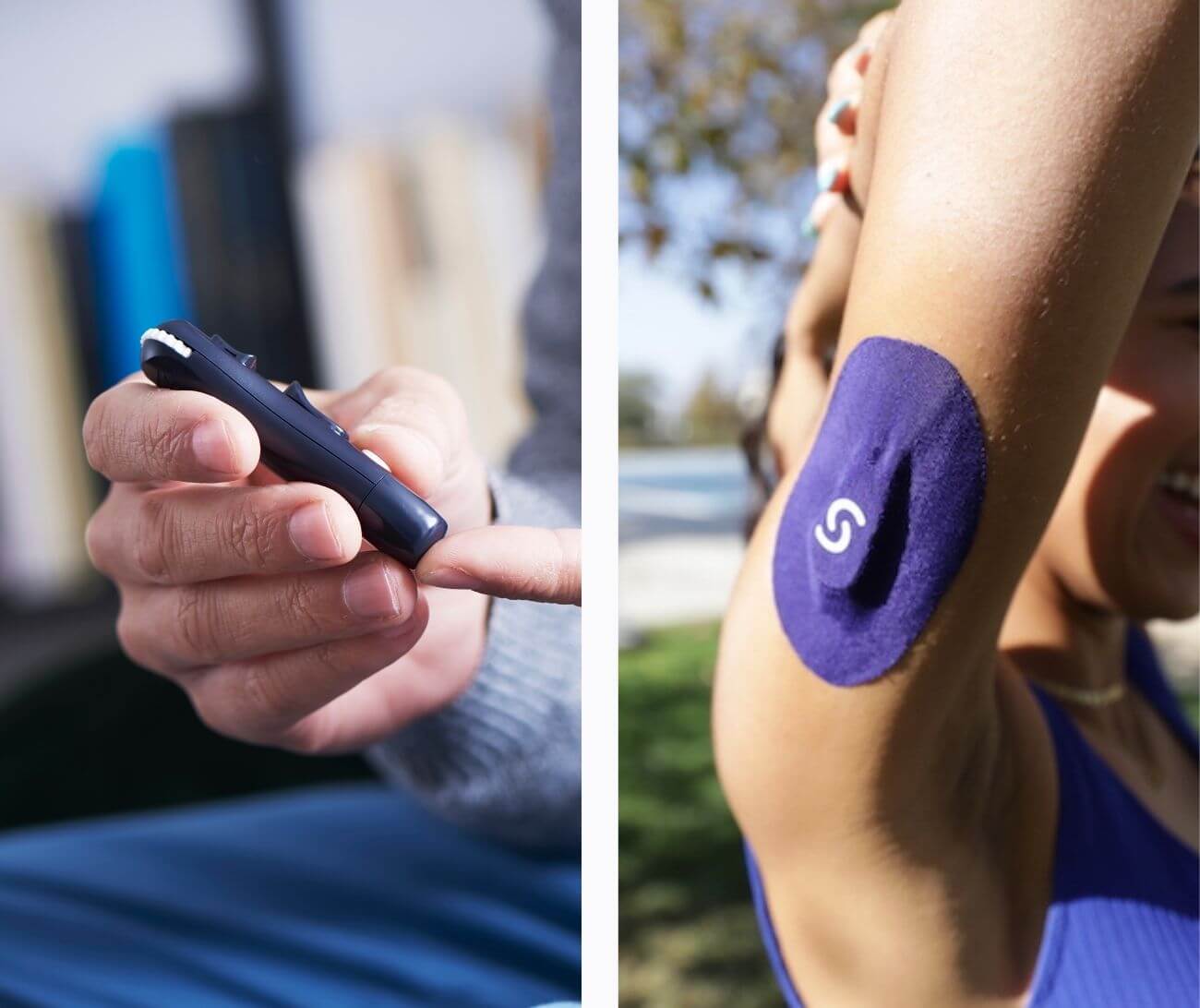The choices we make at mealtime play a crucial role in our overall health, particularly in preventing chronic conditions like type 2 diabetes. By focusing on specific foods and dietary habits, it's possible to significantly reduce the risk of developing this condition and prediabetes. This is a condition where blood sugar levels are higher than normal but not yet high enough to be classified as type 2 diabetes. It's a critical warning sign that should be taken seriously because it increases the risk of diabetes, heart disease, and stroke.
In this article, we'll explore the best diet tips to help you make informed food choices that can keep your blood sugar levels in check and reduce risk factors. From understanding the importance of whole grains to practicing portion control, you'll discover practical ways to create a diet that helps with diabetes prevention.
{{mid-cta}}
Best 9 Dietary Tips to Prevent Type 2 Diabetes

Below are the best healthy diet tips to guide you toward healthy eating patterns that can help stabilize blood sugar levels, manage weight, and support overall metabolic health.
1. Choose Carbs That Are High in Fiber
Opt for whole grains, legumes, and vegetables that are rich in fiber. High-fiber carbohydrates, such as brown rice, digest slowly, preventing rapid spikes in blood sugar levels and promoting fullness, which can help with weight management.
2. Include Fruits and Vegetables in Your Diet
Incorporating a variety of fruits and non-starchy vegetables into your meals ensures you're getting essential vitamins, minerals, and antioxidants. These nutrients support overall health and may help protect against insulin resistance.
3. Limit Processed Meats
High intake of processed meats like bacon, sausages, and deli meats has been linked to an increased risk of type 2 diabetes. Opt for lean protein sources like poultry, fish, beans, and tofu whenever possible.
4. Drink Coffee and Tea
Studies suggest that moderate consumption of coffee and tea, especially green tea, may reduce the risk of type 2 diabetes. These beverages contain antioxidants and compounds that may improve insulin sensitivity.
5. Prioritize Healthy Fats
Incorporate sources of unsaturated fats and omega-3 fatty acids, as opposed to trans fats or saturated fats, such as avocados, nuts, yogurt, seeds, and olive oil, into your diet. While you may be tempted to seek out low-fat products, it’s best not to limit fat entirely. These healthy fats can help improve insulin sensitivity and reduce inflammation, both of which are important for preventing diabetes.
6. Reduce Your Carb Intake
While carbs are an important part of a balanced diet, consuming them in moderation is key. Lowering your overall carb intake, especially from refined sources like white bread, fruit juice, and added sugars, can help maintain stable blood sugar levels.
7. Optimize Your Vitamin D Intake
Vitamin D plays a role in insulin production and sensitivity. Make sure you’re getting enough through sun exposure, foods like fatty fish and fortified dairy, or supplements if necessary.
8. Stay Hydrated
Drinking plenty of water throughout the day helps maintain healthy blood sugar levels. Water is the best choice, as sugary drinks can lead to blood sugar spikes and contribute to weight gain.
9. Practice Portion Control
Managing portion sizes is crucial for preventing type 2 diabetes. Eating smaller, balanced meals can help regulate blood sugar and prevent overeating, which is often linked to weight gain and insulin resistance.
<div class="pro-tip"><strong>Also Read: </strong><a href=nuts-blood-sugar>Do Nuts Raise Blood Sugar? 6 Best Nuts for Your Blood Health</a></a>.</div>
Lifestyle Changes to Prevent Type 2 Diabetes

Preventing type 2 diabetes is a proactive approach that involves making sustainable lifestyle changes in addition to dietary swaps. By focusing on key areas such as physical activity, stress reduction, and adequate sleep, individuals can significantly reduce their risk of developing this chronic condition. These changes not only help in maintaining healthy blood sugar levels but also work towards preventing other comorbidities, like high blood pressure, cholesterol, and obesity.
- Quit Smoking: Smoking increases insulin resistance, making it harder for your body to regulate blood sugar levels. By quitting, you can improve insulin sensitivity and reduce your risk of developing diabetes.
- Exercise Regularly: Engaging in regular physical activity, such as walking, swimming, or cycling, helps to reduce obesity and improve insulin sensitivity. Aim for at least 150 minutes of moderate exercise per week to lower your diabetes risk.
- Limit Alcohol Intake: Excessive alcohol consumption can lead to weight gain and increased blood sugar levels. Moderating your alcohol intake to one drink per day for women and two for men can help reduce the risk of type 2 diabetes.
- Maintain a Healthy Body Weight: Carrying excess weight, especially around the abdomen, increases the risk of insulin resistance. Adopting a balanced diet and regular exercise routine can help you achieve and maintain a healthy weight.
- Manage Stress: Chronic stress can elevate blood sugar levels and contribute to insulin resistance. Incorporate stress-reducing activities like yoga, meditation, or deep breathing exercises into your daily routine.
- Get Adequate Sleep: Poor sleep patterns are linked to weight gain and insulin resistance. Aim for 7-9 hours of quality sleep each night to support metabolic health and reduce the risk of type 2 diabetes.
Learn More About How to Improve Blood Sugar Health With Signos’ Expert Advice
Choosing the proper medication is crucial for improving overall health, effectively managing diabetes, and controlling weight loss. The right medication can help regulate blood sugar levels, prevent complications, and support sustainable weight management. However, with various treatment options available, it’s essential to receive personalized advice from healthcare professionals, such as a registered dietitian, to ensure your medication plan aligns with your specific health needs and lifestyle. Signos’ experts provide tailored guidance, helping individuals navigate their options to find the most effective solutions. Their expertise ensures that you’re not only managing diabetes but also optimizing your overall well-being.
Discover how Signos can improve your health by offering insights into your glucose levels and personalized recommendations. Learn more about managing glucose levels on Signos’ blog, or find out if Signos is a good fit for you by taking a quick quiz.
<div class="pro-tip"><strong>Learn More: </strong><a href=how-much-sugar-should-a-type-2-diabetic-have-a-day>Sugar Limits for Type 2 Diabetics: Daily Recommendations</a>.</div>
- Item 1
- Item 2
- item 3


.jpg)




























